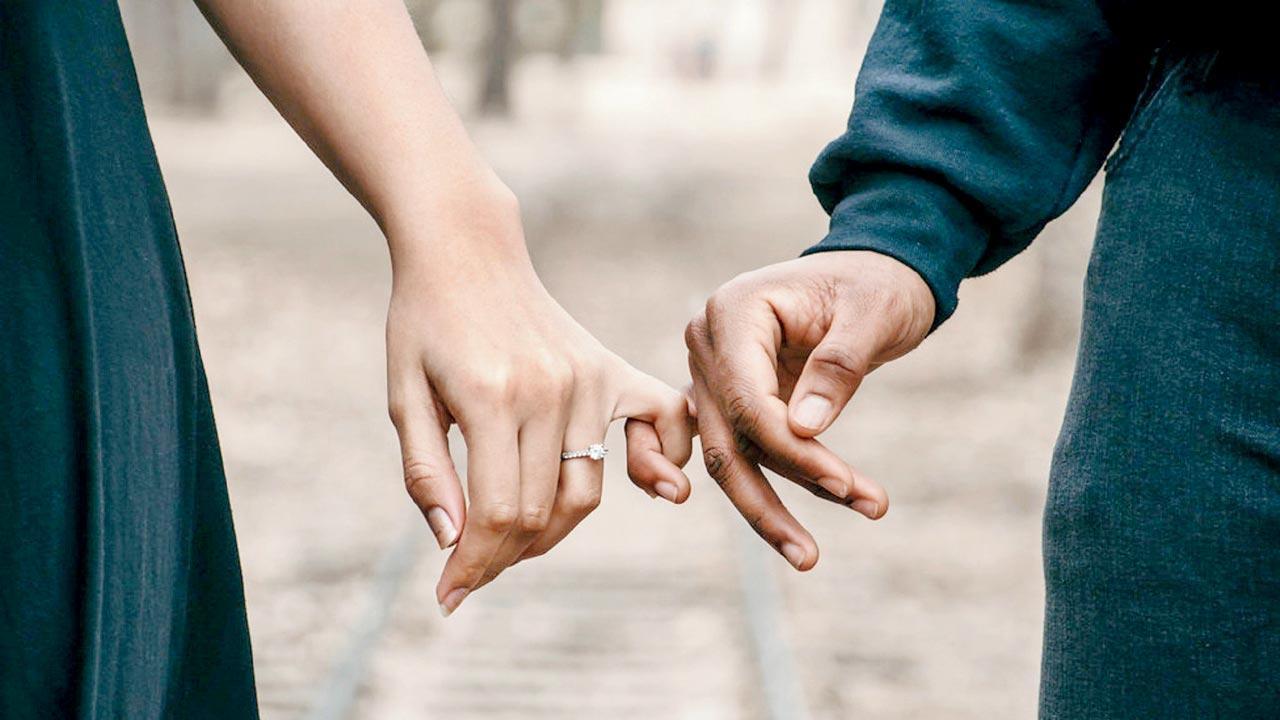These days promises are made too casually and no one expects them to be kept. But there’s a surprising lesson to be learned in making a promise that’s hard to keep

They say people with good intentions make promises but people with character keep them
 I discovered about 30 years ago that Utkarsh Mazumdar doesn’t drink tea. My surprise was genuine. Utkarsh lives in Mumbai, the city that invented “cutting chai”, and is a veteran actor of Gujarati stage, also well-known for his roles in films like Raees, Satya and Samvidhaan. Everybody knows that the entertainment industry runs on hot chai.
I discovered about 30 years ago that Utkarsh Mazumdar doesn’t drink tea. My surprise was genuine. Utkarsh lives in Mumbai, the city that invented “cutting chai”, and is a veteran actor of Gujarati stage, also well-known for his roles in films like Raees, Satya and Samvidhaan. Everybody knows that the entertainment industry runs on hot chai.
“What about coffee then?”
“No, I don’t drink that either,” he said, asking the waiter for plain water.
Intrigued, I asked him why he didn’t like two of the world’s most popular beverages.
“I love them,” he said. “But I made a promise.”
When Utkarsh was a 15-year-old schoolboy, the social activist and reformer Ravishankar Maharaj appealed to Gujarati communities to donate whatever they could to help fight the drought that was sweeping Gujarat. Many schoolchildren made pledges, promising to sacrifice something they valued. Utkarsh noticed that their pledges were time-bound and decided his would be different.
I met Utkarsh when he was 38. He had not drunk tea or coffee for 23 years.
We live now in a time when promises are made casually and frequently with no intention or expectation that they will be kept. Promises are strategic and transactional, the currency of relationships—from the ‘I’ll call you back in exactly five minutes’ and ‘I’ll think about it’ to the predictable hypocrisy of a politician’s promises just before the elections.
I think it’s time someone called the bluff.
There’s something inherently duplicitous about a promise. Think of the politician who promises to serve the people night and day, or your friend who promises to be on time. A politician is supposed to serve his people; and when you set up a meeting, you’re supposed to be there on time. If it needs a promise to make you stick to your words, you didn’t mean it to start with.
Here are some others— “Busy, call you later.”
“We’ll keep in touch for sure.”
“I’ll always be here for you no matter what, I promise.”
Here are four kinds of promises you should ignore, with the worst first.
1. Edited promises. At COP26, the UN Climate Change Conference last year, attended by nearly 40,000 delegates from 189 countries, India had a problem with the promise to “phase out” use of unabated coal, which is burning coal without carbon capture and storage. India preferred “phase down”. Since it was the last day, the arm-twisting worked and India got her way. The promise was reworded.
But efforts to remove carbon dioxide are not a substitute for reducing emissions, argued Martin Wolf, principal investigator at the Yale Centre for Environmental Law and Policy. By tweaking the promise, India, the world’s third-largest producer of fossil fuel energy—after the USA and China, note—secured a free pass to go at its own pace.
A negotiated, watered-down promise is not a commitment, it’s a get-out-of-jail-free card. Do not trust.
2. Passive-aggressive promises. Do not trust promises from passive-aggressive people who agree too enthusiastically with your opinions and demands and have only praise for you. When they break the promise, they will even deny having made it.
3. Promises from happy people. You know the saying: Never make a decision when you’re angry. Never make a promise when you’re happy.
4. Unnecessary promises. I’m instinctively wary of people who turn everyday actions into promises.
I promise I’ll be there; I promise I won’t let you down; I promise you won’t regret this; I promise this is the last time. Nearly every time you hear these words, be sure the story isn’t over.
The promises hardest to keep are the ones we make to ourselves. Back when I used to smoke, I’d quip about how easy it was to give up. “Trust me, I do it all the time,” I’d say.
The truth was that nothing worked, not New Year resolutions, not nicotine patches, not attempts to phase out cigarettes, not promises to myself. However, I was unaccountable since no one knew my internal struggles. The infidel in me would break the promise and light up, and the philanthrope in me would decide to let it go just one more time.
But something changed on October 16, 1986. Upon waking up, at exactly 8.26 am, I gave up smoking and never touched a cigarette again. No promises, no resolutions, no plan, no pain.
They say people with good intentions make promises but people with character keep them. I asked Utkarsh why he quit tea and coffee, which were harmless and pleasurable.
“It’s no big deal to make a promise you can easily keep,” he said. “A real promise is one you keep even though it is difficult to honour.”
I spoke to him yesterday after many years. He’s 68 now and sometimes his voice quavers. But he still doesn’t touch tea or coffee.
He’s still keeping the promise he made 53 years ago.
Here, viewed from there. C Y Gopinath, in Bangkok, throws unique light and shadows on Mumbai, the city that raised him. You can reach him at cygopi@gmail.com
Send your feedback to mailbag@mid-day.com
The views expressed in this column are the individual’s and don’t represent those of the paper
 Subscribe today by clicking the link and stay updated with the latest news!" Click here!
Subscribe today by clicking the link and stay updated with the latest news!" Click here!










